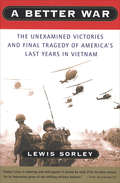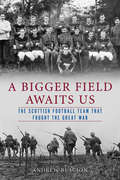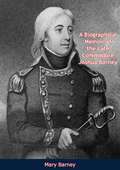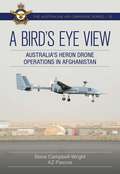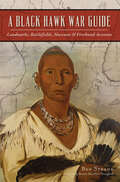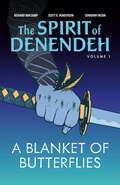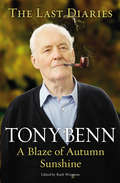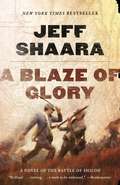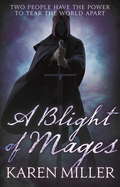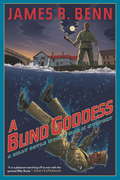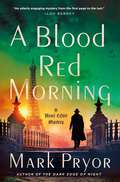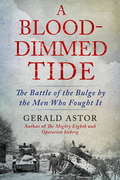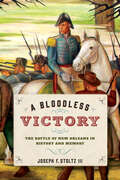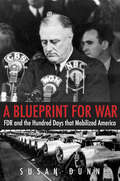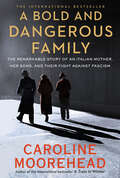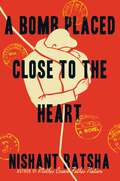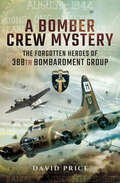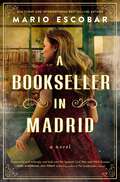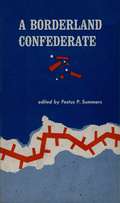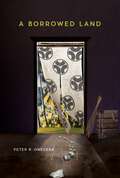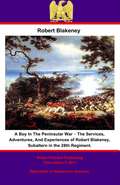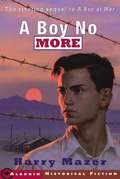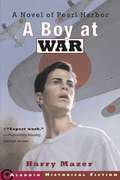- Table View
- List View
A Better War: The Unexamined Victories and Final Tragedy of America's Last Years in Vietnam
by Lewis Sorley&“A comprehensive and long-overdue examination of the immediate post–Tet offensive years [from a] first-rate historian.&” —The New York Times Book Review Neglected by scholars and journalists alike, the years of conflict in Vietnam from 1968 to 1975 offer surprises not only about how the war was fought, but about what was achieved. Drawing from thousands of hours of previously unavailable (and still classified) tape-recorded meetings between the highest levels of the American military command in Vietnam, A Better War is an insightful, factual, and superbly documented history of these final years. Through his exclusive access to authoritative materials, award-winning historian Lewis Sorley highlights the dramatic differences in conception, conduct, and—at least for a time—results between the early and later years of the war. Among his most important findings is that while the war was being lost at the peace table and in the U.S. Congress, the soldiers were winning on the ground. Meticulously researched and movingly told, A Better War sheds new light on the Vietnam War.
A Bigger Field wits Us: The Scottish Football Team That Fought The Great War
by Andrew BeaujonEach November, about a hundred people with paper poppies pinned to their coats gather around a memorial near a commuter rail station in Edinburgh to listen to a Salvation Army band and remember how more than a dozen members of the local football team, Heart of Midlothian—almost every member of its starting lineup and many of its backup players—went to war. The Edinburgh Evening News ran pages of splendid photos of the Hearts players in McCrae's Battalion when they enlisted in November 1914. "Clever Forwards for the Army," one headline read, but the report barely acknowledged the carnage of the Battle of the Somme that cost the battalion 80 percent of its men within a few days. On July 3, 1916, two days after the action began, the newspaper raved about its "Magnificent Opening," and mentioned only "Light Allied Casualties." The newspapers doled out news of the players' deaths slowly. After the war, surviving soldiers, many of them wounded, gassed, and suffering from what was then called "shell shock," returned home to a public that had only the weakest grasp of what had happened. Perhaps the pointlessness of so much suffering and death was too awful to contemplate. All of Edinburgh threw a parade for the men of McCrae's Battalion when they marched off to war, but no one wanted to be reminded that their commanders later traded their lives and health for a few yards of French mud.A Bigger Field Awaits Us: The Scottish Football Team That Fought the Great War tells the little-known but poignant story of a group of Scottish athletes and their fans who went to war together—and the stories of the few who made it home. The saga of McCrae's Battalion brings much-needed human scale to World War I and explains why a group of young men from a small country with almost no direct connection to the conflict would end up sacrificing their careers, their homes, their health, and in many cases their lives to an abstract cause. Their sacrifices illuminate the dark corners of this war that history's lights rarely reach.
A Biographical Memoir of the Late Commodore Joshua Barney: From Autobiographical Notes And Journals In Possession Of His Family, And Other Authentic
by Mary BarneyBorn in Baltimore in 1759, Joshua Barnett embarked on his naval career in 1771 at the tender age of 12. He saw varied service around the Americas and Europe before returning to fight for the nascent United States. He arrived in America, shortly after the Battle of Bunker Hill, where he joined the colonial navy. He went on to serve aboard the sloop "War Hornet" and later other ships; distinguished at the defence of the Delaware river. He was captured and imprisoned for a short time in England. He commanded the Chesapeake Bay Flotilla during the War of 1812, culminating in his heroic efforts at the battle of Bladensburg. Six years later, in 1818, he died from the wounds he had received.
A Bird's Eye View: Australia's Heron Drone Operations in Afghanistan
by Steve Campbell-Wright AZ PascoeThe Royal Australian Air Force&’s Heron unmanned aerial vehicle (UAV) was a critical asset in the fight against terrorism and insurgency in Afghanistan. From 2009 to 2014, the Heron detachment provided intelligence, surveillance and reconnaissance (ISR) support to Australian and Coalition forces on the ground, contributing to the mission&’s success and helping to keep our soldiers safe. A Bird&’s Eye View provides an in-depth look at the RAAF Heron detachment&’s operations in Afghanistan, offering a rare glimpse into the world of UAV operations in a complex and challenging environment. It provides a detailed account of the Heron&’s capabilities, the challenges faced by the detachment and the contributions made by the men and women who served in this vital role. Through the personal accounts of those who served in the Heron integrated project team and the Heron detachment, readers will better understand the impact of the Heron UAV on the mission in Afghanistan. They will also gain insights into the unique challenges faced by those who operate UAVs and their critical role in modern warfare.A Bird&’s Eye View is a tribute to the courage, dedication and professionalism of the RAAF Heron detachment and a testament to the enduring spirit of the Australian Defence Force. It is a must-read for anyone interested in the history of the RAAF, the role of UAVs in modern warfare and the sacrifices made by our men and women in uniform.
A Black Hawk War Guide: Landmarks, Battlefields, Museums & Firsthand Accounts (Military)
by Ben StrandThe Black Hawk War was the final conflict east of the Mississippi River between American Indian communities and the United States regular troops and militia. Exploring the museums, wayside markers and parks relating to that struggle is not just a journey of historic significance through beautiful natural scenery. It is also an amazing convergence of legendary personalities, from Abraham Lincoln to Jefferson Davis. Follow the fallout of the war from the Quad Cities on the Illinois/Iowa border, through the "Trembling Lands" along the Kettle Morraine and into the Driftless Area of southern Wisconsin. Pairing local insight with big-picture perspective, Ben Strand charts an overlooked quadrant of America's frontier heritage.
A Blanket of Butterflies (The Spirit of Denendeh)
by Richard Van CampNo one knows how a suit of samurai armour ended up in the Fort Smith museum. When a mysterious stranger turns up to claim it, Sonny, a young Tłı̨chǫ Dene boy, is eager to help.Shinobu has travelled to Fort Smith, NWT, to reclaim his grandfather&’s samurai sword and armour. But when he discovers that the sword was lost in a poker game, he must confront the man known as Benny the Bank. Along the way, Shinobu must rely on unlikely heroes—Sonny, his grandmother, and a visitor from the spirit world. Together, they face Benny and his men, including the giant they call Flinch.Will Shinobu be able to regain the lost sword and, with it, his family&’s honour? Can Sonny and his grandmother help Shinobu while keeping the peace in their community?Now in full colour, this new edition includes additional background information and cultural context. Learn about the real-life inspiration behind the story and the intersections between Indigenous and Japanese Canadian experiences during the Second World War.
A Blaze of Autumn Sunshine: The Last Diaries
by Tony BennIn this final volume of diaries, Tony Benn reflects on the compensations and the disadvantages of old age. With the support of a small circle of friends and his extended family, he continues his activities on behalf of social justice, peace and accountability in public life, to a background of political change and the international economic crisis. Following an illness in 2009 the diaries, kept for over sixty years, cease. Published here alongside these last diaries are Tony Benn’s highly personal insights into the challenges of old age and failing health, of widowhood,and of moving out of the family home after sixty years. Finally, we share in Tony Benn's hopes for the future based on his years of experience and his natural optimism.
A Blaze of Glory: A Novel of the Battle of Shiloh (the Civil War in the West #1)
by Jeff Shaara"[An] exciting read . . . [Jeff] Shaara returns to the U.S. Civil War in this first book of a new trilogy. . . . This novel is meticulously researched and brings a vivid reality to the historical events depicted."--Library Journal NEW YORK TIMES BESTSELLERSpring 1862. The Confederate Army in the West teeters on the brink of collapse. General Albert Sidney Johnston is forced to abandon the critical city of Nashville and rally his troops in defense of the Memphis and Charleston Railroad. Hot on Johnston's trail are two of the Union's best generals: Ulysses Grant and Don Carlos Buell. If their combined forces can crush Johnston's army and capture the railroad, the war in the West likely will be over. There's just one problem: Johnston knows of the Union plans and is poised to launch an audacious surprise attack on Grant's encampment--a small settlement in southwestern Tennessee anchored by a humble church named Shiloh. Drawing on meticulous research, Jeff Shaara dramatizes the key decisions of the commanders on both sides of the conflict--and brings to life the junior officers, conscripts, and enlisted men who gave their all for the cause. With stunning immediacy, Shaara takes us inside the maelstrom of Shiloh as no novelist has before. "Brilliant . . . riveting . . . a work to be embraced."--BookreporterIncludes a preview of Jeff Shaara's next Civil War novel, A Chain of Thunder.aps the war itself.
A Blight of Mages: Kingmaker, Kingbreaker: Book 3 (Kingmaker, Kingbreaker #3)
by Karen Miller'A writer who seems set to rule the genre' - Waterstones Books Quarterly'A Blight of Mages is an intoxicating and heart-wrenching story depicting two young people torn by desire and ability' - British Fantasy SocietyHundreds of years before the great Mage War, a land lies, unknowing, on the edge of catastrophe . . .Barl is young, impulsive and wants to explore her raw magical potential. But Dorana's rigid class system means that only those with the right pedigree are trained. Desperate to learn, Barl lets her eagerness lead her to rebellion and disgrace. She faces the possibility of never using her powers again - until she meets Morgan Danfey, who sits on the Mage Council itself.Together, they realise they can create an extraordinary new magic. But the lure of this great power reveals a darkness in Morgan which will bring their land to its knees.From the bestselling Karen Miller comes a compelling fantasy novel set in the world before The Innocent Mage - the age before the great Mage War . . .Books by Karen Miller:Kingmaker, Kingbreaker SeriesThe Innocent MageThe Awakened MageA Blight of MagesGodspeakerEmpress of MijakThe Riven KingdomThe Hammer of GodFisherman's ChildrenThe Prodigal MageThe Reluctant MageTarnished CrownThe Falcon ThronePrince of Glass
A Blind Goddess (A\billy Boyle Wwii Mystery Ser. #8)
by James R. BennMarch, 1944: US Army Lieutenant Billy Boyle, back in England after a dangerous mission in Italy, is due for a little R&R, and also a promotion. But the now-Captain Boyle doesn't get to kick back and enjoy his leisure time because two upsetting cases fall into his lap at once. The first is a personal request from an estranged friend: Sergeant Eugene "Tree" Jackson, who grew up with Billy in Boston, is part of the 617th Tank Destroyers, the all-African American battalion poised to make history by being the US Army's first combatant African American company. But making history isn't easy, and the 617 faces racism at every turn. One of Tree's men, a gunner named Angry Smith, has been arrested for a crime he almost certainly didn't commit, and faces the gallows if the real killer isn't found. Tree knows US top brass won't care about justice in this instance, and asks Billy if he'll look into it.But Billy can't use any of his leave to investigate, because British intelligence agent Major Cosgrove puts him on a bizarre and delicate case. A British accountant has been murdered in an English village, and he may or may not have had some connection with the US Army--Billy doesn't know, because Cosgrove won't tell him. Billy is supposed to go into the village and investigate the murder, but everything seems fishy--he's not allowed to interrogate certain key witnesses, and his friends and helpers keep being whisked away. Billy is confused about whether Cosgrove even wants him to solve the murder, and why. The good news is the mysterious murder gives Billy an excuse to spend time in and around the village where Tree and his unit are stationed. If he's lucky, maybe he can get to the bottom of both mysteries--and save more than one innocent life.From the Hardcover edition.
A Blood Red Morning: A Henri Lefort Mystery (Henri Lefort Mysteries #3)
by Mark PryorIn this unputdownable WWII series, Paris detective Henri Lefort, must solve a complex case when a man is murdered on the policeman's own doorstep.January 1941: It's cold and still dark when Paris Detective Henri Lefort wakes up to an empty apartment, irritated with his roommate for not even starting the coffee.Irritation turns to suspicion when he starts his walk to work and spots a large blood stain in front of the building. At the office his boss, chief of homicide, is incredulous that Henri didn't hear the gunshot that killed a man right outside his apartment. On the plus side, this means that Henri isn't a witness and can investigate the case.It first appears that the dead man is a nobody—but Henri soon finds out he's a nobody with a classified police file. Henri confronts his bosses and then the Germans, but is stonewalled. So he turns his investigation to the other tenants in his building. Coincidentally, each resident claims ignorance. When Henri learns that the dead man was a German agent, he must face the real possibility that one of his friends and neighbors is a killer. It's his job to find the truth no matter what, but when he does he faces the biggest dilemma of his career—whether in times like these the rules of justice should be, just sometimes, trumped by the rules of war.
A Blood-Dimmed Tide: The Battle of the Bulge by the Men Who Fought It
by Gerald AstorDrawing on firsthand accounts by survivors of the bloody Battle of the Bulge, diaries, letters, and official documents, this study describes the events of the campaign, hardships faced by the soldiers, the battle's horrifying costs, and the controversy surrounding the campaign.
A Bloodless Victory: The Battle of New Orleans in History and Memory (Johns Hopkins Books On The War Of 1812 Ser.)
by Joseph F. Stoltz IIIThis study of military historiography examines the changing narrative of the Battle of New Orleans through two centuries of commemoration.Once celebrated on par with the Fourth of July, the anniversary of the Battle of New Orleans is no longer a day of reverence for most Americans. The United States’ stunning defeat of the British army on January 8th, 1815, gave rise to the presidency of Andrew Jackson, the Democratic Party, and the legend of Jean Laffite. Yet the battle has not been a national holiday since 1861.Joseph F. Stoltz III explores how generations of Americans have consciously revised, reinterpreted, and reexamined the memory of the conflict to fit the cultural and social needs of their time. Combining archival research with deep analyses of music, literature, theater, and film across two centuries of American popular culture, Stoltz highlights the myriad ways in which politicians, artists, academics, and ordinary people have rewritten the battle’s history.From Andrew Jackson’s presidential campaign to the occupation of New Orleans by the Union Army to the Jim Crow era, the continuing reinterpretations of the battle alienated whole segments of the American population from its memorialization. Thus, a close look at the Battle of New Orleans offers an opportunity to explore not just how events are collectively remembered across generations but also how a society discards memorialization that is no longer necessary or palatable.
A Bloodless Victory: The Battle of New Orleans in History and Memory (Johns Hopkins Books on the War of 1812)
by Joseph F. Stoltz IIIExploring the changing narrative of the Battle of New Orleans through two centuries of commemoration.Once celebrated on par with the Fourth of July, January 8th—the anniversary of the Battle of New Orleans—is no longer a day of reverence for most Americans. Although the United States’ stunning 1815 defeat of the British army south of New Orleans gave rise to the presidency of Andrew Jackson, the Democratic Party, and the legend of Jean Laffite, the battle has not been a national holiday since 1861. Joseph F. Stoltz III explores how generations of Americans have consciously revised, reinterpreted, and reexamined the memory of the conflict to fit the cultural and social needs of their time. Combining archival research with deep analyses of music, literature, theater, and film across two centuries of American popular culture, Stoltz highlights the myriad ways in which politicians, artists, academics, and ordinary people have rewritten the battle’s history. While these efforts could be nefarious—or driven by political necessity or racial animus—far more often they were simply part of each generations’ expression of values and world view. From Andrew Jackson’s presidential campaign to the occupation of New Orleans by the Union Army to the Jim Crow era, the continuing reinterpretations of the battle alienated whole segments of the American population from its memorialization. Thus, a close look at the Battle of New Orleans offers an opportunity to explore not just how events are collectively remembered across generations but also how a society discards memorialization efforts it no longer finds necessary or palatable.
A Blueprint for War: FDR and the Hundred Days that Mobilized America (The Henry L. Stimson Lectures Series)
by Susan Dunn&“Dunn shows how FDR&’s Third Hundred Days were critical to overcoming isolationism and rebuilding American leadership in an age of global turmoil.&” (E.J. Dionne Jr., New York Times bestselling co-author of One Nation After Trump) In the cold winter months that followed Franklin Roosevelt&’s election in November 1940 to an unprecedented third term in the White House, he confronted a worldwide military and moral catastrophe. Almost all the European democracies had fallen under the ruthless onslaught of the Nazi army and air force. Great Britain stood alone, a fragile bastion between Germany and American immersion in war. In the Pacific world, Japan had extended its tentacles deeper into China. Susan Dunn dramatically brings to life the most vital and transformational period of Roosevelt&’s presidency: the hundred days between December 1940 and March 1941, when he mobilized American industry, mustered the American people, initiated the crucial programs and approved the strategic plans for America&’s leadership in World War II. As the nation began its transition into the preeminent military, industrial, and moral power on the planet, FDR laid out the stunning blueprint not only for war but for the American Century. &“Dunn&’s achievement is to make the view of FDR&’s accomplishment clear.&” —The Boston Globe &“Susan Dunn is one of the great Roosevelt historians of our time.&” —Michael Beschloss, New York Times bestselling author of Presidents of War &“Superbly researched and written.&” —James T. Patterson, Bancroft Prize-winning author of Grand Expectations &“The definitive telling of a pivotal episode in American history.&” —Edward J. Larson, Pulitzer Prize-winning author of The Return of George Washington
A Bold and Dangerous Family: The Remarkable Story of an Italian Mother, Her Sons, and Their Fight Against Fascism
by Caroline MooreheadFrom the bestselling author of A Train in Winter, the story of the Rosselli family, whose courage standing up to Mussolini's fascism helped define the path of Italy in the years between the World Wars."I had a house: they destroyed it. I had a newspaper: they closed it. I had a university chair: I was forced to abandon it. I had--as I still do--dreams, dignity, ideals: to defend them I was sent to prison. I had teachers: they murdered them." --Carlo Rosselli on Italy's fascist regime Italy's Rosselli family were members of the cosmopolitan, cultural elite in Florence at the start of the 20th century. Led by their fierce matriarch, Amelia Rosselli, they were also vocal anti-fascists. As Mussolini rose to power in Italy following WWI, the Rossellis took leading roles in the rebellion against him, a stance that few in their class would risk. And when Mussolini established a police state whose tactics grew more brutal, the Rossellis and their anti-fascist friends transformed from debaters and critics into activists. As punishment for their participation in revolutionary activities, the Rossellis' homestead was ransacked, one after another of their number was imprisoned, others in the family fled the country to escape a similar fate, and two were eventually assassinated on the orders of Mussolini's government. After the outbreak of WWII, Amelia fled with the remaining members of the Rosselli family to New York City. Their visas were arranged by Eleanor Roosevelt herself. Through the stories of these brave people and their friends, renowned historian Caroline Moorehead delivers an immersive picture of Italy in the first half of the 20th century. She reveals the rise and fall of Mussolini and his black-shirted Squadristi; the ambivalence of many prominent Italian families to Mussolini and their seduction by his promises; and the bold, fractured anti-fascist movement, so many of whose members died at Mussolini's hands. Continuing "The Resistance Quartet" she began with A Train in Winter and continued with Village of Secrets, Moorehead once again shows us the faces of those who helped the world hold on to its humanity at a time when it seemed all might be lost.
A Bomb Placed Close to the Heart: A Novel
by Nishant BatshaNamed a Summer Read by: New York Times * Los Angeles Times * Minneapolis Star TribuneAn expansive and poignant novel of love, radical ambition, and intellectual rebirth set at the dawn of World War IAt a party near Stanford University’s campus in 1917, Cora Trent, a graduate student raised in the rugged mining towns of the American West, meets Indra Mukherjee, an Indian revolutionary newly arrived in California. Indra is grieving the recent loss of a friend and unsure of the place violence has in the cause of national liberation, while Cora is seeking a new life that stays true to her aspirations as a writer and an idealist. They spark an instant connection, and their passionate romance deepens as they attend protests alongside anticolonial dissidents and socialize with eccentric thinkers in Berkeley and Palo Alto. All the while, Indra awaits orders from a mysterious German spymaster.Cora and Indra quickly marry, even as the United States is drawn into the conflict in Europe and wartime patriotism begins to give way to increasing intolerance. When news of arrests threatens their future together, they are forced to flee to New York City with the hope that they can avoid the attention of the British and American authorities. Trying to find footing in their new life, Cora and Indra must reckon with divergent ambitions that challenge the foundations of their hasty marriage—and their freedom.Profound, immersive, tenderly written, and with finely wrought characters drawn from the forgotten archives of American history, A Bomb Placed Close to the Heart is an extraordinary story of a marriage caught at the intersection of radical politics and everyday life.
A Bomber Crew Mystery: The Forgotten Heroes of 388th Bombardment Group
by David PriceAn antique trophy inspires a quest to uncover the history of an outstanding crew of WWII airmen who first flew into combat on D-Day. After discovering a discarded trophy in an Edinburgh antique shop, author David Price endeavored to tell the stories of the men whose names had been engraved upon it. Praised as &‘Outstanding Crew of the Month&’, the members of 388th Bombardment Group set out on their very first mission on June 6, 1944—D-Day. This baptism of fire heralded the start of an illustrious career in battle. During August and September of 1944, they took part in over thirty perilous missions. And yet the details of their endeavors have largely been forgotten. Here, the history of 388th Bombardment Group&’s service is told in great detail from interviews with each surviving member of the group, together with family members, in an effort to glean more information about their wartime deeds, and to reunite them with the trophy that they won in the midst of it. A Bomber Crew Mystery serves as a poignant and evocative tribute to the 388th Bombardment Group, as well as all those who fought in the skies of the Second World War.
A Bookseller in Madrid: A Novel
by Mario EscobarHow can the words of the past help heal the horror of the present?For as long as she can remember, Barbara Spiel has always found solace in books. Born in Germany and having come of age in a tumultuous era, she flees her home country as the Nazis rise to power in the early 1930s. Her destination? Madrid. There she's determined to realize her long-held dream of opening a bookshop and creating a safe haven for young idealists and independent thinkers to come together to transform the world.Yet Spain isn't immune from its own troubles. The winds of change are blowing through both city and countryside, and it's impossible to predict what will happen. When the outbreak of the Spanish Civil War puts Barbara and everyone around her in peril--including the Spanish Socialist parliamentarian she's fallen deeply in love with--the terror and hatred seem all too familiar. It's like Germany all over again, only with its own cast of extremist characters.Hounded simultaneously by Stalinist checas, Francoist Facists, and the German Gestapo, Barbara fights to keep her bookstore the safe haven that she's always imagined it would be. But with war brewing both inside Spain and outside its borders throughout the entirety of Europe--and beyond--Barbara isn't sure who exactly she can trust, or if people really are who they claim to be.A story told with tremendous heart and astonishing historical accuracy, A Bookseller in Madrid is ultimately a story about dreams--dreaming with courage when nothing seems to make sense, and dreaming with hope when words printed on a page are all you can hold on to.
A Bookshop in Paris
by Ellen FeldmanThe war is over, but the past is never past … Paris, 1944. Charlotte Foret is working in a tiny bookstore in Nazi-occupied Paris struggling to stay alive and keep her baby Vivi safe as the world around them is being torn apart. Every day they live through is a miracle until Vivi becomes gravely ill. In desperation, Charlotte accepts help from an unlikely saviour – and her life is changed forever. Charlotte is no victim – she is a survivor. But the truth of what happened in Paris is something she can never share with anyone, including her daughter. But can she ever really leave Paris behind – and survive the next chapter of her life? Seamlessly interweaving Charlotte&’s past in wartime Paris and her present in the 1950s world of New York publishing, A Bookshop in Paris is a heartbreakingly moving and unforgettable story of resilience, love – and impossible choices. 'Completely compelling. I tore through it. This novel pivots on how we manage to survive surviving ... Charlotte's visceral story will stay with me.&’ Naomi Wood, author of Mrs Hemingway &‘Masterful, magnificent. A passionate story of survival. This story will stay with me for a long time&’Heather Morris, bestselling author of The Tattooist of Auschwitz Published in the US and Australia as Paris Never Leaves You
A Borderland Confederate
by Festus P. Summers William Lyne WilsonWilliam Lyne Wilson was only seventeen and a half years old when South Carolina, voted for succession from the United States of America and sparked the Civil War into life. A native Virginian, Wilson, without hesitation, but with some foreboding, volunteered to join his southern brothers in arms in the Confederate Army. He was drafted into the 12th Virginia Cavalry, the Army of North Virginia, and would fight with courage and gallantry in the Shenandoah Valley, Maryland and all the way to Appomattox.
A Borrowed Land
by Peter R. OnederaA Borrowed Land tells the untold stories of Guam’s Nikkei—people of Japanese descent—before, during, and after World War II. As the descendant of an issei, or firstgeneration immigrant, Peter R. Onedera chronicles the Nikkei’s experiences in Guam from their arrival to their assimilation into the island’s life and culture, their hardship and resilience during the war, and the struggles they endured after. Onedera interweaves both historical and personal accounts to document how heritage and history shape personal and collective identity. The story also unveils the complexities of Onedera’s own healing, as he explores his CHamoruJapanese heritage and reveals the discrimination he and other Nikkei experienced in postwar Guam.
A Boy In The Peninsular War – The Services, Adventures, And Experiences of Robert Blakeney, Subaltern in the 28th Regiment.: The Services, Adventures And Experiences Of Robert Blakeney, Subaltern In The 28th Regiment
by Julian Sturgis Robert BlakeneyThis ebook is purpose built and is proof-read and re-type set from the original to provide an outstanding experience of reflowing text for an ebook reader. Robert Blakeney was by modern standards a callow youth at the age of fifteen, in the standards of the time in which he lived he was a gentleman and a soldier. Blakeney was commissioned as a subaltern in the 28th Regiment, he was to see tough and trying service in the Peninsular under both Sir John Moore and the Duke of Wellington. Although the author eschews any literary pretensions, claiming that he was far too busy with his active career soldiering, the autobiography is excellently written with no little wit, aided no doubt by tight editing by Julian Sturgis. His description of the hell of Badajoz is particularly well done. Many incidents of the camp and bivouac that Blakeney recounts revolve around the characters of his soldiers, who not infrequently happen to be Irish, and the great generals that he meets in carrying out his duties; such as Sir John Moore, Lord Paget, General Graham and the Iron Duke himself. As an example of which Lord Paget is memorably recalled infusing some urgency into one of Blakeney's superiors during the retreat of 1809; 'Dragoon, what news?" "News, sir? The only news I have for you is that unless you step out like soldiers, and don't wait to pick your steps like bucks in Bond Street of a Sunday with shoes and silk stockings, damn it! you'll be all taken prisoners." "Pray, who the devil are you?" came from the cart. "I am Lord Paget," said the dragoon;' Blakeney, served during the Copenhagen expedition, the Coruña campaign including the battle, the siege of Tarifa, the battle of Barossa, the siege of Badajoz, and finally the battle of Nivelle in which he is severely wounded. A highly enjoyable and recommended read. Text taken, whole and complete, from the 1899 edition, published in London, John Murray. Original -369 pages Author - Robert Blakeney - (1789-1858) Editor - Julian Sturgis - (1848-1904) Map - Not included due to its size Linked TOC.
A Boy No More
by Harry Mazer"WHAT ABOUT WHAT THEY DID TO MY FATHER?... <P> THE JAPS KILLED HIM!" <P> Adam Pelko witnessed something horrible: the sinking of the USS Arizona during the attack on Pearl Harbor -- with his father aboard. Since then, Adam and his mother and sister have moved to California, where they are trying to rebuild their lives. <P> But no matter where Adam goes, he can't get away from the effects of the war. His best friend, Davi, has asked for help. Davi is Japanese American, and his father has been arrested, taken to Manzanar, a Japanese internment camp. <P> Adam isn't sure what to do. If he goes to Manzanar and starts asking questions, he could be risking his own life. But can he simply do nothing and risk losing Davi's friendship forever? Are Davi, his father, and all the other Japanese Americans taken from their homes responsible for what happened at Pearl Harbor? <P> In this riveting follow-up to his acclaimed book A Boy at War, Harry Mazer explores questions of friendship and loyalty against the backdrop of World War II, a time when boys had to grow up fast.
A Boy at War: A Novel of Pearl Harbor
by Harry MazerThey rowed hard, away from the battleships and the bombs. Water sprayed over them. The rowboat pitched one way and then the other. Then, before his eyes, the Arizona lifted up out of the water. That enormous battleship bounced up in the air like a rubber ball and split apart. Fire burst out of the ship. A geyser of water shot into the air and came crashing down. Adam was almost thrown out of the rowboat. He clung to the seat as it swung around. He saw blue skies and the glittering city. The boat swung back again, and he saw black clouds, and the Arizona, his father's ship, sinking beneath the water. -- from A Boy at War "He kept looking up, afraid the planes would come back. The sky was obscured by black smoke....It was all unreal: the battleships half sunk, the bullet holes in the boat, Davi and Martin in the water." December 7, 1941: On a quiet Sunday morning, while Adam and his friends are fishing near Honolulu, a surprise attack by Japanese bombers destroys the fleet at Pearl Harbor. Even as Adam struggles to survive the sudden chaos all around him, and as his friends endure the brunt of the attack, a greater concern hangs over his head: Adam's father, a navy lieutenant, was stationed on the USS Arizona when the bombs fell. During the subsequent days Adam -- not yet a man, but no longer a boy -- is caught up in the war as he desperately tries to make sense of what happened to his friends and to find news of his father. Harry Mazer, whose autobiographical novel, The Last Mission, brought the European side of World War II to vivid life, now turns to the Pacific theater and how the impact of war can alter young lives forever.
